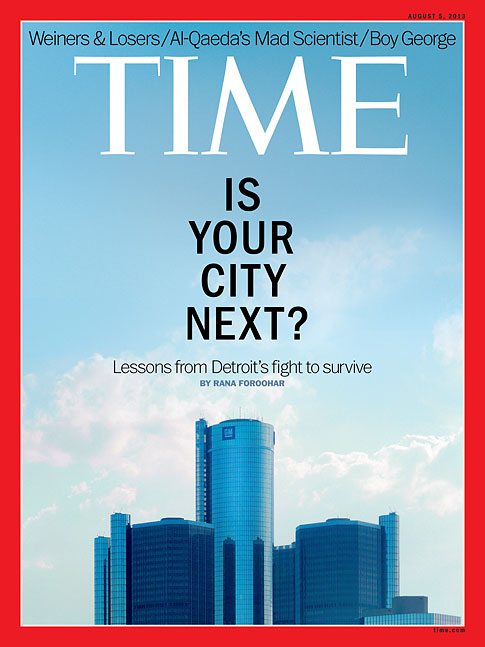
(4 of 6)
In many ways, what's happening in detroit and other beleaguered American cities is a microcosm of our national situation. Just as the dysfunction in Washington doesn't characterize the entire U.S. economy, broken city governments and pension systems don't necessarily define the economic fortunes of cities themselves. At a national level, if you stripped government out of the economy, we'd already be at 3% growth rather than 2%. The private sector is in an increasingly robust recovery, and while second-quarter GDP figures are likely to be somewhat weak, many analysts are predicting a good rest of the year for areas like housing, construction, manufacturing and some parts of the retail sector. Meanwhile, government at all levels is still shrinking and cutting, creating a headwind for the overall economy.
Likewise, the federal-deficit conversation has always been flawed: the U.S. doesn't have a debt problem so much as it has a long-term entitlement problem. The same is true for many cities; Detroit, Chicago, Philadelphia and Portland, Ore., may have unsustainable public finances, but they also have interesting strategies for growth. "City governments don't equal city economies," says Brookings' Katz. "It's possible to have unsustainable city budgets and dysfunctional politics and very exciting regional growth prospects and all of those trends happening at once."
Perhaps no city illustrates that better than Chicago. Its pension liabilities are actually far higher than Detroit's, while its economy is nearly three times as large and unemployment a third lower. But unions have made it difficult even to craft a plan for pension reform, let alone come up with a deal. Chicago had its credit downgraded the day before Detroit declared bankruptcy, an event that "was an alarm bell to everyone in the state, and should be to everyone around the country," says Illinois Governor Pat Quinn, who is trying to force the Illinois legislature to enact pension reform by refusing to take his own salary and refusing to pay theirs until they come up with a solution.
